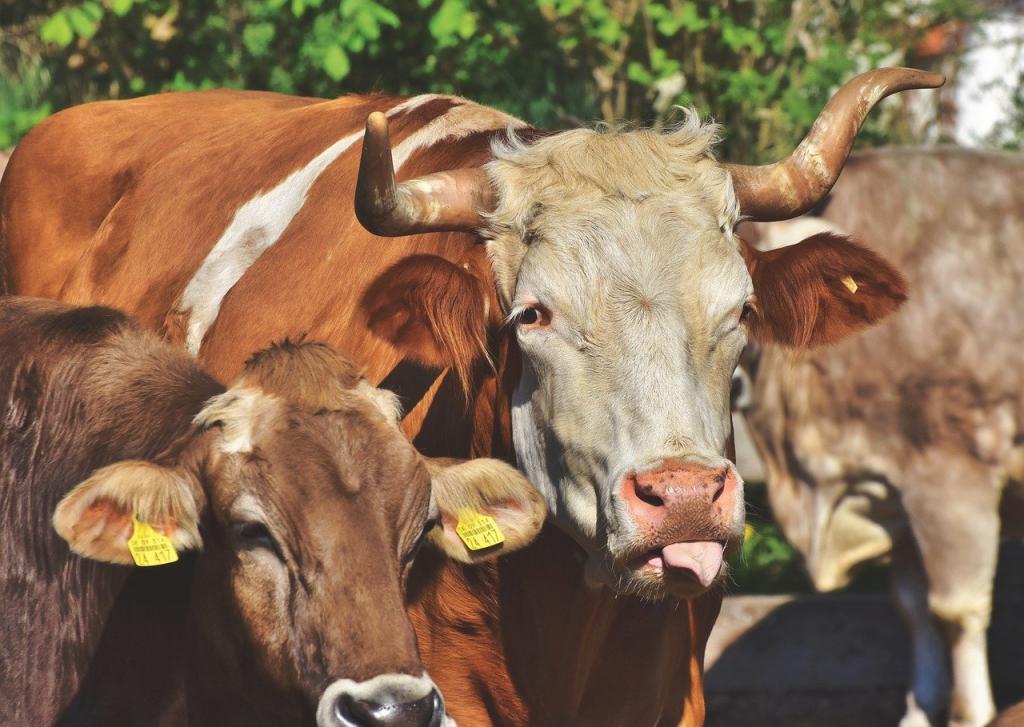
Animal rights activists have concentrated mostly on animals’ right to life. But now the concerns are extending to animals’ sexual rights.
Voters in both Colorado and Oregon are considering referendum petitions that would not only restrict the slaughter of livestock, but also define artificial insemination and the castration of bulls as illegal “sex acts.”
The Colorado proposal would require that animals live at least 25% of their natural lives before they can be slaughtered. It defines the natural lifespans as 20 years for a cow, 15 years for a pig, six years for a rabbit, and eight years for a chicken. Beef cattle are usually slaughtered after two years. The referendum would allow that only after five years.
The Oregon referendum, though, would go much further. Animals could only be used for food after they die of natural causes.
As the news story on the Colorado petition points out, the meat of older animals is touch and unpalatable. In Oregon, it might also be diseased.
Both petitions also would forbid the way the livestock industry breeds animals. The Colorado proposal expands the definition of a sex act with an animal–that is, the statute that forbids bestiality–to include “any intrusion or penetration, however slight, with an object or part of a person’s body into an animal’s anus or genitals.” That rules out artificial insemination–which is used extensively today to breed the best livestock–as well as embryo transplants and even pregnancy checks.
The Oregon referendum would classify those practices, as well as the castration of bulls and other male animals, as sexual assault.
The measures would, illogically, exempt the spaying and neutering of pets. Why forbidding artificial insemination would not apply to humans–who, as animal rights activists keep reminding us, are also animals–is not clear, but the fertility clinics do not seem threatened.
The goal, of course, is to shut down the two states’ large livestock and dairy industries. Though farmers and ranchers are alarmed at the prospect, it’s hard to imagine a majority of voters in those states, blue though they are, to go along with that. But a leader of the Colorado group that is fighting the petition says that he has little doubt that it will get the required 124,632 signatures necessary to get on the ballot. Oregon requires that a referendum petition get 112,000 signatures to go before the voters.
One of the promoters of the measure in Oregon is undeterred by the unlikelihood that the referendum will pass. “We’ll just keep putting it before voters,” he said, “until a better world is here.”
Indeed, Americans might someday feel so guilty about what they eat that these kinds of laws could go into effect. Farmers and ranchers would do well to frame the issues somewhat differently.
Among human beings, the push for sexual rights have mutated into gender issues. The same thing could happen with animals.
The difficulty is that permissible sexual behavior hinges on consent, and it is difficult to ascertain animal consent. And much of the sexual assault animals suffer from comes from other animals.
Bulls are notorious for their displays of toxic masculinity. With their proclivity to violence, they establish dominance over a herd, thus imposing a patriarchal social system. And their sexual aggressiveness is highly inappropriate. This makes the case that we should castrate bulls.
But, to make that palatable to contemporary sensibilities, farmers and ranchers should call that procedure “gender reassignment surgery.”
Similarly, the case for artificial insemination could be made on feminist grounds. That procedure allows heifers to enjoy the fulfillment of motherhood without being subjugated to the male of the species.
The culling of males–after castration makes them better meat-producers–is already commonplace in the livestock industry. The male animals are slaughtered, while the female animals are preserved for breeding purposes. Artificial insemination means that a large numbers of males is not necessary, further contributing to the slaughter of males. Here, too, a feminist argument might be persuasive in justifying the meat-packing plants.
HT: Larry Haws
Image by Capri23auto from Pixabay











